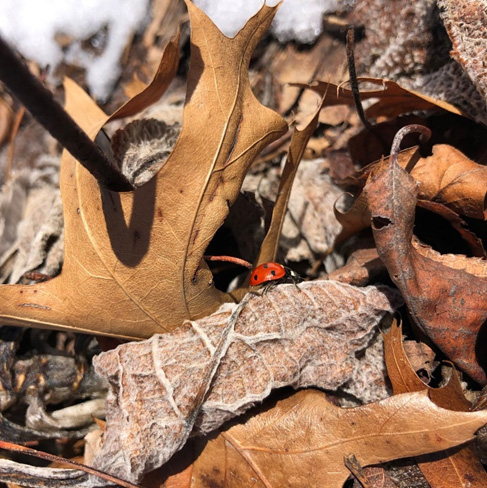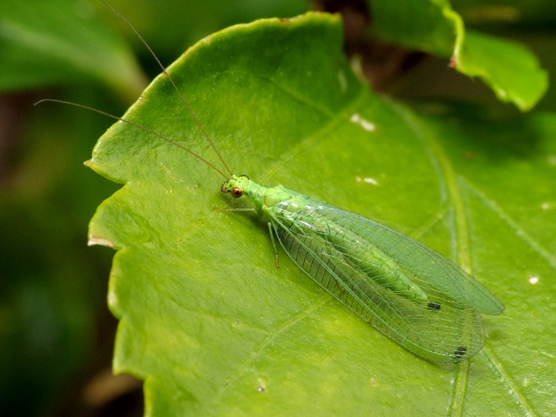Creepy crawlies in your garden can seem alarming, but a surplus of certain bugs and insects in your garden is a good thing! It shows that your garden is healthy, well versed in plant species, and also a place for bugs to thrive.
Many bugs help your garden. The first reason to keep good bugs in your garden is that they can be pollinators. Insects such as bees, butterflies, and moths pollinate your garden’s flowers.
Next, most of these insects are predators. These bugs eliminate other pests by eating them. Bugs such as ladybugs, praying mantises, and green lacewing larvae can act as your bodyguards against harmful pests.
Finally, some of them are parasites, such as parasitic wasps. These insects lay their eggs on or in the bad bugs, then when they hatch, the larvae feed on the host insects.
Let’s learn more about what bugs to keep in your garden!
Note: While our common vocabulary calls all insects bugs, that’s not really the case.
All bugs are insects, but not all insects are bugs. True bugs are insects belonging to the order Hemiptera, including cicadas, bed bugs, and aphids. They typically suck juices from plants or blood from animals. But for the purposes of this blog, “bugs” will probably mean insects or other living things like spiders that are commonly found in gardens!
Bugs You Want to Keep in Your Garden
It’s time to get into the nitty gritty of what bugs you want to keep in your garden. If you do see a harmful pest in your garden do not immediately spray them with pesticides. This can cause the good bugs to die or avoid your garden entirely. Give it time, those pests may go away naturally from being eaten by other predators. If you don’t see them leaving after a while, we recommend researching more natural ways to get rid of them to protect your garden and the good bugs that reside in it.
Ladybugs
Ladybugs are no dainty bugs… they’re fierce predators! Before a ladybug is fully formed they start off as larvae. These ladybug larvae eat up to 40 aphids in an hour. Aphids are extremely dangerous to plants. They suck up all the nutrient-rich liquids out of the plants, which will end up killing the plant. Ladybug larvae will help keep those aphids under control!


You can attract lady bugs by planting dill, fennel, and chives. Adding them will attract and make the ladybugs want to hang out in your garden for a long time.


Adult Green Lacewings
Adult green lacewings are little bugs in adult form that primarily eat pollen and nectar, but as larvae, they eat soft-bodies garden pests which include invasive caterpillars and aphids.


Green lacewings are very easy to attract into your garden. By planting dill, angelica, or lovage into your landscape, you are assured to find green lacewings shortly after.


Praying Mantis
The intricate praying mantis is another bug you’ll want to see hanging out in your garden. The praying mantis will feast on any grasshoppers that are bothering your landscape. Praying mantises will also prey on other pests such as moths, beetles, and flies.


Praying mantises love long and tall grass. If you don’t like your lawn long or your garden grass longs, try growing shrubs, dill, and marigolds as a substitute.
Spiders
The not-so-popular spider is next up on our list of good bugs (technically arachnid!). Usually we would want to kill any spider in sight because they are creepy and crawly, but don’t smash them if they are in your garden. Spiders are professional pest controllers!


The first thing to keep in mind while trying to attract spiders is to have places for them to spin their webs. Plants that promote this are are large and tall plants such as corn. Plants that grow tall but are also sturdy enough are good options.


How to Protect the Good Bugs
To protect bugs in your garden, refrain from using pesticides. Pesticides will kill off the pests but also kill off bugs that you need in your garden. These good bugs won’t destroy your garden, they get rid of the ones that will kill your garden.
Another way you can protect the good bugs is to provide homemade wooden structures. These structures provide insects with a place to nest, breed, raise their young, and a protective place to overwinter, if needed.
In your homemade bug home, place natural materials collected from your landscape and local woodlands. Collecting these items will mimic the forest floor to promote bugs using your bug home!
Want to know more about the bugs and insects in your local environment? Drop by Green Bay Botanical Garden to check out our ongoing Habitat exhibit to discover more about the importance of bugs and their homes!
Habitat was developed by Smithsonian Gardens and is made available by the Smithsonian Institution Traveling Exhibition Service.
Sources:







